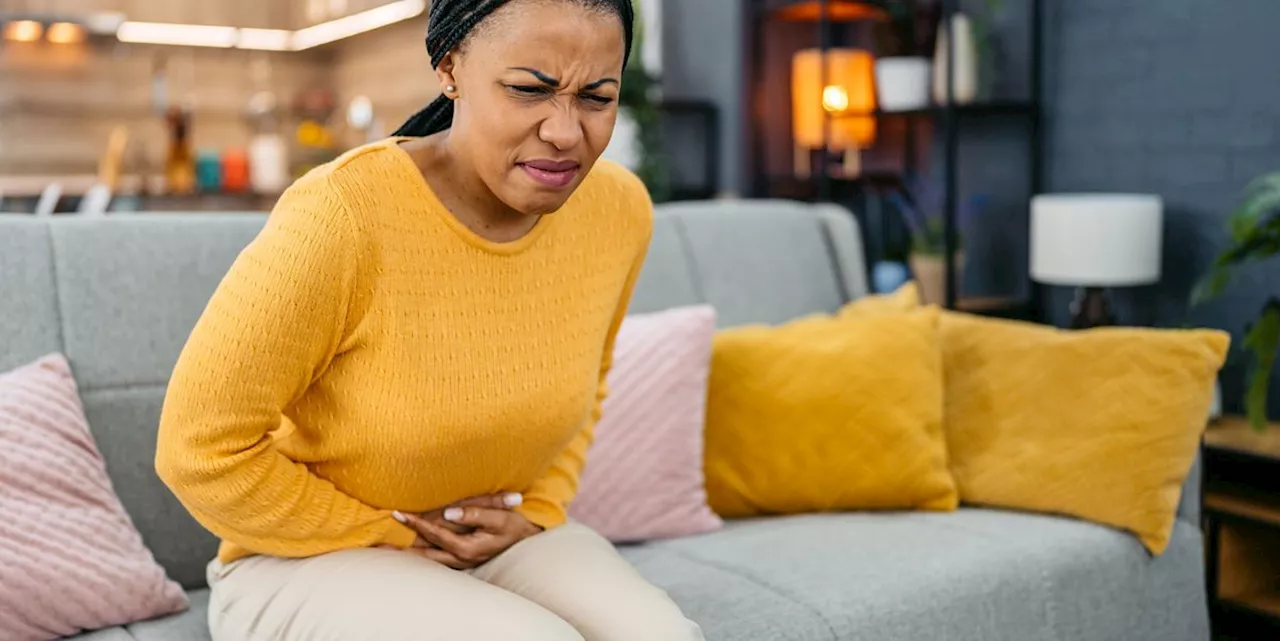Learn how to differentiate between food poisoning and a stomach bug, and discover tips for managing symptoms and preventing future outbreaks.
Feeling queasy and wondering if it’s something you ate? While food poisoning from spoiled or improperly prepared food may be the culprit responsible for your GI woes, you’re just as likely to be dealing with a stomach bug . So if a person infected with the virus has been handling your food, there’s a good chance they spread their germs to you, says. And a stomach bug can be tough. That’s because both conditions bring on nausea, vomiting, and those dreaded stomach cramps.
But knowing exactly what you have can help you manage symptoms and avoid a repeat run-in with either condition. Let’s break down the clues that can help you tell them apart and how to recover faster when you’re hugging the porcelain throne. Food poisoning occurs when you consume food (or drinks) tainted by bacteria, fungi, parasites, or viruses—or even their toxic byproducts, according to the foods are more likely to cause food poisoning (also the virus most commonly associated with stomach flu) and hepatitis A can also cause food poisoning. Whenever you eat something toxic—whether it’s infected by bacteria, viruses, or other toxins—your immune system kicks in to flush it out fast. As your body works to clear the bug, you might have uncomfortable symptoms like:] is a general term that usually describes an infection of the stomach,” Dr. Ivanina says. While any bad bugs (e.g., bacteria and parasites) can cause a stomach infection, it’s a good bet that a virus is to blame. Tiny traces of it can stick around on hands or surfaces, transferring to food, water, or anything you touch. If you eat contaminated food or touch your mouth after contact, you could become exposed to the virus.), which affects your respiratory system. Different viruses cause each infection, and they target different parts of the body. The nickname likely stuck because both illnesses are common and hit during “However, if your stomach infection is hitting you hard, your immune system might mount an even stronger response. When this happens, you might have symptoms outside of your digestive system. According to theSometimes it can be tough to tell whether you’re fighting off food poisoning or a stomach bug (especially since norovirus can cause both!). “In fact, norovirus is the leading cause of vomiting, diarrhea,Though it’s not always cut and dry, here are a few ways to try to distinguish whether you picked up germs from bad food or a sick person.a few hours after you’ve eaten bad food,” Dr. Ivanina says. On the other hand, “a stomach bug usually has a longer incubation period,” typically between 24 to 48 hours before symptoms start, she adds.“Food poisoning usually lasts about 24 hours,” Dr. Ivanina says. But it can vary, especially if your illness is caused by a stubborn parasite or if you live with a weakened. However, the stomach flu clears up after a few days but may linger up to a week or two in severe cases or if you're immunocompromised.Stomach bugs like norovirus are extremely contagious. To avoid spreading them, limit your contact with others, wash your hands often, disinfect shared surfaces (especially in the bathroom), and don’t prepare food for your loved ones until you’ve been symptom-free for 48 hours, Dr. Invanina says. On the other hand, food poisoning happens when you eat contaminated foods, not from contact with another person. Meaning, it’s usually not contagious. However, in some situations, you can potentially spread the bacteria and viruses that cause food poisoning to other people. We know, it’s a bit confusing. Take this example to illustrate: Say you get sick from listeria by eating a contaminated hotdog and you develop food poisoning. But, if your partner picks up your listeria germs (through contact with your puke or poop), they can get ill too.In most cases, food poisoning and stomach bugs will run their course within a few days without treatment. In the meantime, here are some at-home you can try to help your body heal whether you ate spoiled food or caught a stomach virus from another person.After severe symptoms have subsided and your body feels okay enough to consume food, start with bland foods. This will usually include low-fiber foods like Foods high in sugar, fat, dairy, and gluten can make symptoms worse. Additionally, it's a good idea to avoid alcohol and processed foods until symptoms completely go away and you have recovered. While these home remedies are enough for most people, some groups may require more treatment. This includes young children, pregnant people, older adults, and folks living with chronic illnesses. If you or a loved one is having severe symptoms that aren’t improving with home remedies, it’s important to reach out to a healthcare provider for medical options like intravenous fluids or medications that can help manage symptoms.You can lower your odds of getting (or spreading) food poisoning or a stomach bug by practicing good hygiene. Follow these tips from Dr. Ivanina: Stay home from school or work when you are sick, and isolate yourself when you are symptomatic to avoid spreading infection to othersWash fruits and vegetables before eating themCook meat and seafood until well done, and eggs until yolk is firmThough stomach cramps, puking, and pooping can be unpleasant, these symptoms are actually a sign that your immune system is fighting like it should. In most cases, your body will typically clear food poisoning or a stomach infection within a few days. However, if your symptoms don’t get any better (or worsen) after 24 to 48 hours, it’s a good idea to check in with your healthcare provider. According to Dr. Ivanina, seek medical attention if you have:In some cases, your healthcare provider may test your stool to see what bacteria or virus is causing your symptoms, Dr. Ivanina says. Knowing the exact cause can help you and your provider understand which treatments you need to get yourself back on your feet and live well
Food Poisoning Stomach Bug Norovirus Symptoms Treatment Prevention Hygiene
United States Latest News, United States Headlines
Similar News:You can also read news stories similar to this one that we have collected from other news sources.
 Norovirus on the Rise: Stomach Bug Spreads RapidlyA highly contagious stomach bug called norovirus is experiencing a significant spike in cases across the nation. Learn about its transmission, symptoms, and how to prevent infection.
Norovirus on the Rise: Stomach Bug Spreads RapidlyA highly contagious stomach bug called norovirus is experiencing a significant spike in cases across the nation. Learn about its transmission, symptoms, and how to prevent infection.
Read more »
 Norovirus Surge: Stomach Bug Cases Spike Across USNorovirus, the highly contagious stomach bug causing vomiting and diarrhea, is seeing a record number of outbreaks in the US as 2025 begins. The CDC reports a surge in cases, exceeding numbers seen in recent years. This 'winter vomiting disease' is most common between November and April but can occur year-round.
Norovirus Surge: Stomach Bug Cases Spike Across USNorovirus, the highly contagious stomach bug causing vomiting and diarrhea, is seeing a record number of outbreaks in the US as 2025 begins. The CDC reports a surge in cases, exceeding numbers seen in recent years. This 'winter vomiting disease' is most common between November and April but can occur year-round.
Read more »
 4 Things Doctors Recommend Doing to Get Over the Stomach Bug FastgEating the right foods, sleeping enough, and reducing stress can keep your immune system in top shape.
4 Things Doctors Recommend Doing to Get Over the Stomach Bug FastgEating the right foods, sleeping enough, and reducing stress can keep your immune system in top shape.
Read more »
 What's the best way to kill norovirus, the 'stomach bug'?Skyler Ware is a freelance science journalist covering chemistry, biology, paleontology and Earth science. She was a 2023 AAAS Mass Media Science and Engineering Fellow at Science News. Her work has also appeared in Science News Explores, ZME Science and Chembites, among others. Skyler has a Ph.D. in chemistry from Caltech.
What's the best way to kill norovirus, the 'stomach bug'?Skyler Ware is a freelance science journalist covering chemistry, biology, paleontology and Earth science. She was a 2023 AAAS Mass Media Science and Engineering Fellow at Science News. Her work has also appeared in Science News Explores, ZME Science and Chembites, among others. Skyler has a Ph.D. in chemistry from Caltech.
Read more »
 Norovirus Surge: Stomach Bug Cases Spike This WinterThe CDC reports a surge in norovirus cases, with the highest weekly count for December since 2012. The highly contagious virus known as the stomach flu, causes intense diarrhea and vomiting. Learn how to protect yourself and your family from this common winter ailment.
Norovirus Surge: Stomach Bug Cases Spike This WinterThe CDC reports a surge in norovirus cases, with the highest weekly count for December since 2012. The highly contagious virus known as the stomach flu, causes intense diarrhea and vomiting. Learn how to protect yourself and your family from this common winter ailment.
Read more »
 Cruise ship ‘gastrointestinal outbreaks’ the worst they’ve been in yearsCruise ships saw there worst year for seeing stomach bug outbreaks in decades.
Cruise ship ‘gastrointestinal outbreaks’ the worst they’ve been in yearsCruise ships saw there worst year for seeing stomach bug outbreaks in decades.
Read more »
